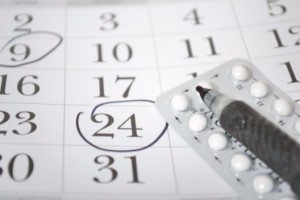
Post-Pill Syndrome (also known as “Post-Birth Control Pill Syndrome” and “Post-Pill Amenorrhea”) is a common issue faced by women when they decide to stop taking birth control. Many, however, have not been educated on what happens to your body once you stop the pill.
Birth control pills contain both estrogen and progesterone. They continue to feed your body these hormones on a daily basis, which raises the levels of both estrogen and progesterone in your blood. Because these levels are so high, your body sends negative feedback to your pituitary gland to stop producing the Follicle Stimulating Hormone (FSH) and Leutinizing Hormone (LH) – both of which are present in a regular cycle.
While the extra estrogen and progesterone are out of your system within a few days of stopping birth control pills, it can take much longer for your body to return to a normal balance.
Dr. Sara Gottfried, gynecologist and author of The Hormone Reset Diet, explained to The Huffington Post: “When you stop the pill, the synthetic hormones from the pill will disappear relatively fast and make pregnancy more likely, but your internal hormones may not return to normal… [until at least] one year after cessation.”
Depending on the woman, normal cycles can resume fairly quickly, and it’s definitely possible to get pregnant immediately after stopping the pill. However, a large number of women don’t have regular cycles again for 6 months and even up to a year.
Although this irregularity is fairly common, sometimes it can indicate that you’re dealing with other serious issues, such as polycystic ovarian syndrome (PCOS).
If your cycle doesn’t return within 6 months, consider speaking with an All About Women doctor.
Related reading: Choosing a Birth Control Method That’s Right For You


